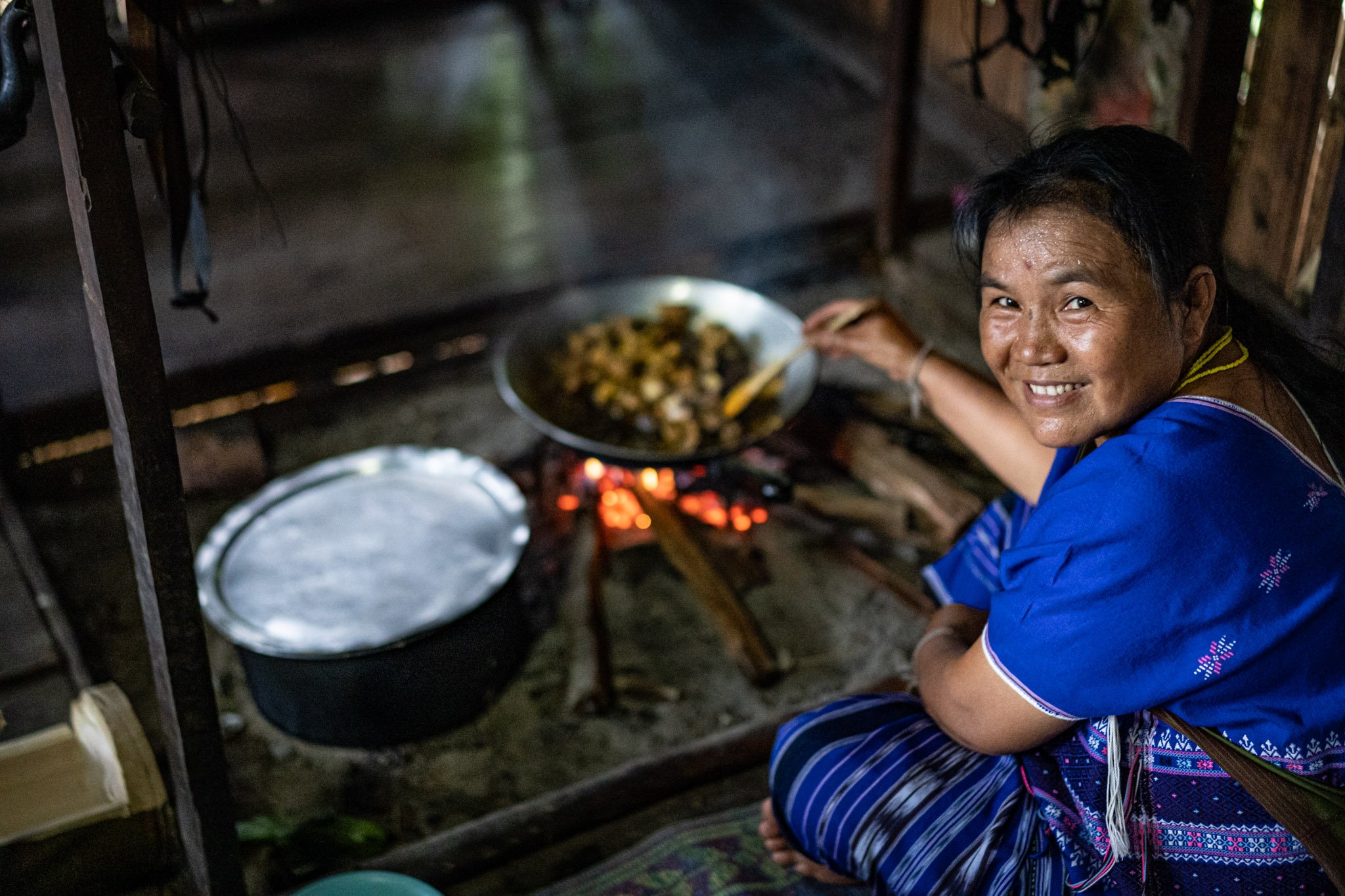Life among the hill tribes of Northern Thailand is beautiful, but precarious.
Life among the hill tribes of Northern Thailand is beautiful, but precarious.
On an early morning walk through the tiny Skaw Karen town of Huay Prachao, roosters roused the late-to-rise; lanky brown dogs ambled with indolence, nosing the doorframes of rough-hewn wooden houses, more out of boredom than anything else, and the occasional cow grunted, incuriously noting my presence while jungle birds tutted and squawked somewhere offstage in the dense tropical foliage.
Soon, the families in the village would rise, most of them from woven mats on bamboo floors. The men and women would start their long days caring for infants, weaving and repairing garments, cooking meals and harvesting rice on a nearby mountain side.
Daily living is nearly hand-to-mouth. If dad catches squirrels this morning, there will be squirrel soup tomorrow. The chickens are too precious to eat on a regular basis, but the eggs are plentiful and delicious as long as the hens have enough to eat. The few people lucky enough to own pigs are raising them for a special occasion, maybe a wedding or a welcome feast for an out of town guest. If it rains today, there will be plenty of water for bathing and washing clothes. If it’s dry, they’ll have to conserve, working carefully to ensure that not a drop is wasted.
There is just enough to get by. Most people don’t have their own motorbike, and only one family appears to own a car. There is a small brick elementary school built with foreign funds, but the closest high school is miles and miles away. In some ways, it’s an idyllic place to grow up, but most children here live each day on the brink of catastrophe, whether they know it or not.
If a parent dies, is incarcerated, faces a long term illness or is trafficked, economic disaster can befall a tribal family overnight. In these circumstances, an orphaned or abandoned child is vulnerable to the worst kinds of deprivation and exploitation imaginable. There is no formal safety net. In fact, hilltribe kids often lack birth certificates, thus rendering them ineligible for government services that the majority-ethnicity Thai citizens might receive.
Asia’s Hope Thailand was built by and for hilltribe children. None of our staff or kids are ethnically Thai. Although our children receive a Thai education — essential for independent success if they choose to pursue a job outside of the village — we’re also careful to maintain these kids’ heritage, language, arts and culture. Every year on school breaks, we return with our kids to their home villages so they can see their relatives and continue the centuries-old traditions that make them uniquely Hmong, Po Karen, Lisu, Lahu, Skaw Karen, Mien, Palaung and Akha.
It was an honor to spend time in this village, and its people have left a lasting impression on me. I’ll long remember their warmth and hospitality, and will pray for their material and spiritual flourishing.















